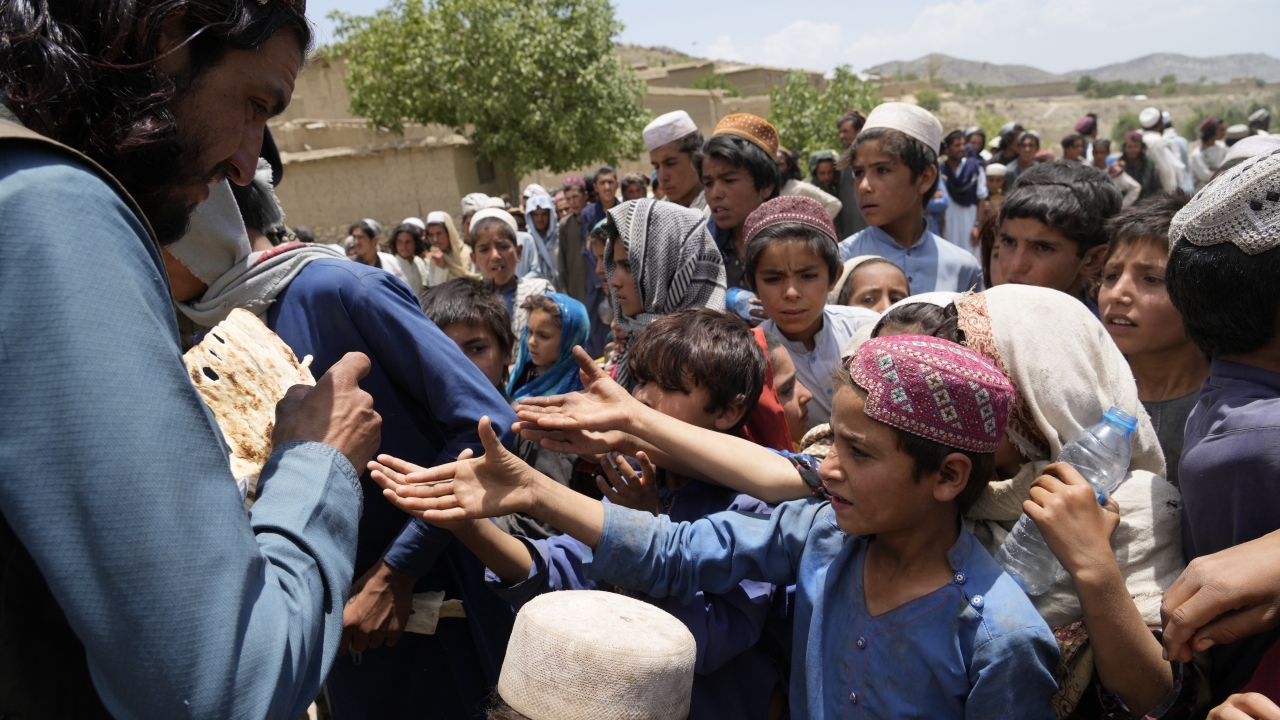Afghan finance and central bank officials from the Taliban-led government departed for Qatar on Wednesday to meet with a U.S. Treasury department official, after last week’s deadly earthquake highlighted how critical relief efforts have stumbled under the weight of the country’s spiraling economic woes.
Last week’s devastating earthquake in southeastern Afghanistan killed around 770 people, according to U.N. figures, though the Taliban put the death toll at closer to 1,150, with thousands injured. The U.N. says 155 children are among those killed in what was the deadliest earthquake to hit the impoverished country in two decades.
The quake struck a remote, deeply impoverished region of small towns and villages tucked among rough mountains near the Pakistani border, collapsing stone and mud-brick homes and in some cases killing entire families. Nearly 3,000 homes were destroyed or badly damaged in Paktika and Khost provinces.
News of a meeting between Taliban government officials and U.S. officials was confirmed by Taliban Foreign Ministry spokesman Hafiz Zia Ahmad, who said the Afghan delegation will be led by Foreign Minister Maulvi Amir Khan Muttaqi. He said the officials will meet in Doha, Qatar with the U.S. Special Representative for Afghanistan and officials from the U.S. Treasury Department to discuss Afghanistan’s economic and banking sectors.
The Washington Post first reported Tuesday that senior Biden administration officials are working with Taliban leadership on a mechanism to allow Afghanistan’s government to use its central bank reserves to deal with the country's severe hunger and poverty crises while erecting safeguards to ensure the funds are not misused.
The Biden administration froze some $9 billion in foreign Afghan central reserves after the Taliban seized power last August, prompting a chaotic and deadly withdrawal of U.S. and NATO allied forces, as well as more than 100,00 Afghans and others.
The international sanctions that followed choked off bank transfers for months into the country, even for many aid groups still operating there. Afghans have since struggled to withdraw money from local banks and tens of thousands of public sector employees continue to see their salaries delayed as the Taliban leadership seeks ways to collect taxes and other fees to keep the government running.
The international sanctions that followed choked off bank transfers for months into the country, even for many aid groups still operating there. Afghans have since struggled to withdraw money from local banks and tens of thousands of public sector employees continue to see their salaries delayed as the Taliban leadership seeks ways to collect taxes and other fees to keep the government running.
Even before the Taliban takeover last year, Afghanistan's economy had been deeply reliant on foreign aid. The U.N. and an array of overstretched aid agencies in the country have tried to keep Afghanistan from the brink of collapse, including the International Committee of the Red Cross which is paying the salaries of health care staff and the operational costs of more than 30 hospitals across the country.
Overstretched aid agencies said the earthquake underscored the need for the international community to rethink its financial cut-off of Afghanistan since Taliban insurgents seized the country. That policy, halting billions in development aid and freezing vital foreign reserves, has helped push the economy into collapse and plunge Afghanistan deeper into humanitarian crises and near famine.
Additional reporting by The Associated Press.







